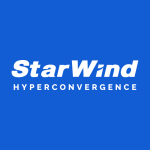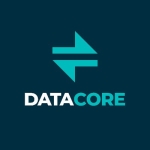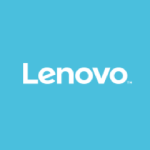By implementing VxRail, we wanted scalability. We wanted to be able to easily add a server and configure it. We wanted the simplicity of configurations for the team so that I do not need to extensively train the team. They know immediately what to do.
VxRail has improved our availability. This means we no longer stress when a server fails. It immediately switches VMs to another machine. I can update without having to set a maintenance window. I have become more independent.
Because everything happens in one window, it is absolutely easy to handle.
VxRail has the ability to consolidate infrastructure from multiple locations, but we are only at one location.
VxRail has had quite a positive effect in terms of energy consumption. I can compare what individual hardware is needed. I can also see which hardware and what capacities are being used. When the VMs move themselves to work evenly on all computers or servers, it is an advantage.
VxRail has helped to reduce unplanned production downtime because we now have a cluster, and the VMs move themselves. We have had two outages in a year. One was a hardware failure, and the other was an update problem. Only two or three VMs were turned off because a component was defective. Otherwise, there was no major outage. They moved everything to other machines as planned, and we could work with it.
With VxRail, the flexibility is very high because we can scale it without any problems for new projects. For example, we have a larger project coming up where many associations will be involved. I can simply plug in additional devices, set up the initial configuration, and let the service configure itself immediately. I am very flexible.
For sustainability, we can recycle them. We have not done it, but we had the option to do it as a lease purchase. That is also advantageous for the future.
Their support is superb. Because of CloudIQ and the proactive approach of Dell, the support for customers is top-notch. We had new hardware or replacement parts on-site within three hours.
I would rate their support a nine out of ten. I do not have a problem with English, but if you want to get support in German, it is a bit more difficult. It used to be easier. It is not a dealbreaker, but it would be nice to have. We are doing great with what we have, but it would be an advantage if from 9 to 10, there was a German-speaking support person. For example, when we were upgrading from version 7 to 8, it would have been nicer to be able to converse more fluently with someone, but that is more of a problem on my end and not with the support.
Overall, I would rate VxRail a ten out of ten. I am satisfied with it. Once you get the hang of it, you can just work on it. If you need support, they can help you configure something.
Foreign Language:(German)
Gute Leistung, viel Flexibilität und erstklassiger Support
Was ist unser Hauptanwendungsfall?
Wir haben eine gute Mischung aus allem. Es gibt Terminalserver, Router, Firewalls und Kundenserver, die alle auf VMs laufen. Wir sind dabei, unsere alten Hardwareserver zu ersetzen. Auch diese haben wir virtualisiert.
Wie hat es meiner Organisation geholfen?
Mit der Implementierung von VxRail wollten wir Skalierbarkeit erreichen. Wir wollten in der Lage sein, einfach einen Server hinzuzufügen und ihn zu konfigurieren. Wir wollten, dass die Konfigurationen für das Team so einfach sind, dass ich das Team nicht ausgiebig schulen muss. Sie wissen sofort, was zu tun ist.
VxRail hat unsere Verfügbarkeit verbessert. Das bedeutet, dass wir keinen Stress mehr haben, wenn ein Server ausfällt. Es schaltet die VMs sofort auf einen anderen Rechner um. Ich kann Updates durchführen, ohne ein Wartungsfenster festlegen zu müssen. Ich bin unabhängiger geworden.
Da alles in der gleichen Ansicht geschieht, ist es absolut einfach zu handhaben.
VxRail hat die Möglichkeit, die Infrastruktur von mehreren Standorten aus zu konsolidieren, aber wir sind nur an einem Standort.
VxRail hat sich in Bezug auf den Energieverbrauch sehr positiv ausgewirkt. Ich kann vergleichen, welche Hardware im Einzelnen benötigt wird. Ich kann auch sehen, welche Hardware und welche Kapazitäten genutzt werden. Es ist von Vorteil, wenn sich die VMs so verschieben, dass sie gleichmäßig auf allen Rechnern oder Servern arbeiten.
VxRail hat dazu geführt, dass wir weniger ungeplante Produktionsausfälle haben, weil wir jetzt einen Cluster haben und die VMs sich selbst verschieben. Wir hatten in einem Jahr zwei Ausfälle. Bei einem handelte es sich um einen Hardwareausfall, bei dem anderen um ein Update-Problem. Nur zwei oder drei VMs wurden abgeschaltet, weil eine Komponente defekt war. Ansonsten gab es keine größeren Ausfälle. Sie haben alles wie geplant auf andere Maschinen verschoben, und wir konnten damit arbeiten.
Mit VxRail ist die Flexibilität sehr hoch, weil wir es ohne Probleme für neue Projekte skalieren können. Wir haben zum Beispiel ein größeres Projekt vor uns, an dem viele Verbände beteiligt sein werden. Ich kann einfach zusätzliche Geräte anschließen, die Erstkonfiguration einrichten und den Dienst sofort selbst konfigurieren lassen. Ich bin sehr flexibel.
Im Sinne der Nachhaltigkeit können wir die Geräte recyceln. Das haben wir nicht getan, aber wir hatten die Möglichkeit, sie als Mietkauf zu erwerben. Das ist auch für die Zukunft von Vorteil.
Was ist am wertvollsten?
Die Gewissheit, dass meine Systeme keine Leistungseinbußen erleiden, egal wo sie sich befinden, ist wertvoll. Ich benötige keine zusätzliche Hardware.
Was muss verbessert werden?
Sie sollten eine bessere Kompatibilität mit anderen Prozessoren, z. B. AMD-Prozessoren, aufweisen.
Wie lange nutze ich die Lösung schon?
Ich verwende VxRail seit Anfang 2023.
Was halte ich von der Stabilität der Lösung?
Es ist jetzt zweimal kaputt gegangen, aber alles lief noch, also würde ich es mit neun von zehn Punkten für die Stabilität bewerten. Es ist toll, dass Dinge ohne größere Auswirkungen ausfallen können.
Was denke ich über die Skalierbarkeit der Lösung?
Es ist skalierbar. Die Skalierbarkeit ist dadurch gegeben, dass wir einfach weitere Server hinzufügen können.
Wie sind Kundenservice und Support?
Der Support ist hervorragend. Aufgrund von CloudIQ und dem proaktiven Ansatz von Dell ist der Support für Kunden erstklassig. Wir hatten innerhalb von drei Stunden neue Hardware oder Ersatzteile vor Ort.
Ich würde den Support mit neun von zehn Punkten bewerten. Mit Englisch habe ich kein Problem, aber wenn man Support auf Deutsch haben möchte, ist es etwas schwieriger. Früher war das einfacher. Das ist kein Hindernis, aber es wäre schön, wenn man es hätte. Wir kommen mit dem, was wir haben, gut zurecht, aber es wäre von Vorteil, wenn es von 9 bis 10 einen deutschsprachigen Supportmitarbeiter gäbe. Als wir zum Beispiel von Version 7 auf 8 umgestiegen sind, wäre es schöner gewesen, sich mit jemandem fließend unterhalten zu können, aber das ist eher ein Problem meinerseits und nicht des Supports.
Wie bewerten Sie den Kundenservice und -support?
Positiv
Welche Lösung habe ich vorher verwendet und warum habe ich gewechselt?
Wir haben keine andere ähnliche Lösung verwendet.
Wie war die Ersteinrichtung?
Wenn ich es ohne die Hilfe des Dell-Mitarbeiters zum ersten Mal gemacht hätte, wäre es komplizierter gewesen. Weil er es mir einmal gezeigt hat, war es sehr einfach. Wenn ich jetzt etwas ändern will, ist das ganz einfach. Dahinter verbirgt sich die ganze Automatisierung. Wenn ich einen neuen Server habe, schiebe ich ihn in das Rack, schließe alle Kabel an, gebe ihm eine IP-Adresse und klicke auf eine Schaltfläche, um den Server hochzufahren.
Was ist mit dem Implementierungsteam?
Wir hatten jemanden von Dell, der uns bei der Installation und Konfiguration geholfen hat.
Welche Erfahrungen habe ich mit den Preisen, den Implementierungskosten und der Lizenzierung gemacht?
Es gibt einen Vorteil für diejenigen, die ein gutes Geschäft mit Dell haben. Sein Preis ist gut. Aus der Sicht eines Unternehmens ist es immer zu teuer, aber es geht um ein gutes Preis-Leistungs-Verhältnis.
Welche anderen Lösungen habe ich bewertet?
Wir haben keine anderen Optionen evaluiert. Wir hatten andere Dell-Server, aber wir hatten kein VxRail. Wir brauchten keine Alternativen. Wir arbeiten gerne mit Dell. Die Kollegen haben es uns angeboten und verkauft.
Bevor wir uns für VxRail entschieden haben, haben wir keine öffentliche Cloud-Infrastruktur in Betracht gezogen.
Welche anderen Ratschläge kann ich geben?
Insgesamt würde ich VxRail mit zehn von zehn Punkten bewerten. Ich bin sehr zufrieden damit. Wenn man einmal den Umgang damit gefunden hat, kann man einfach damit arbeiten. Falls man Unterstützung braucht, kann man sich bei der Konfiguration helfen lassen.



















Nice honest feedback for your specific use case. Doing the job. Have you done any review of the flexibility and license savings you could do by reviewing Cisco HyperFlex? Also don't have to suffer with vSan challenges.